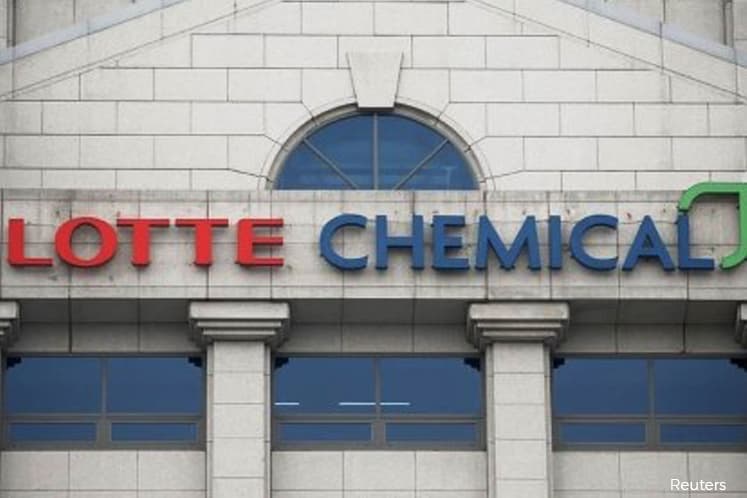
This article first appeared in The Edge Malaysia Weekly on July 10, 2017 - July 16, 2017
EVEN after the revision in the price and size of Lotte Chemical Titan Holding Bhd’s (LCT) initial public offering, it is still the largest IPO on Bursa Malaysia in five years. But the downward revision has triggered discussions on whether the issuer and its advisers had been overly optimistic in their valuations or whether it was a matter of poor timing.
“The initial target of the IPO was to raise up to RM5.9 billion. That is large, and it was obvious from the start that foreign investor participation was needed,” according to an investment banker familiar with the deal.
“From the roadshows and book-building exercise, there was enough demand from foreign institutional investors but most were multi-strategy or hedge funds. To ensure a good after-market performance, and to ensure the stock continues to perform post-listing, additional long-term investors were needed,” he says.
The commitment from cornerstone investors such as Permodalan Nasional Bhd and Eastspring Investments Bhd gave LCT the confidence to set the offer price at RM8 per share. Other committed backers included Great Eastern Life Assurance (M) Bhd, Maybank Asset Management Sdn Bhd and Maybank Islamic Asset Management Sdn Bhd.
However, last Monday, LCT announced that it was reducing its IPO size by 21.7% from 740.483 million shares to 580 million shares. It revised the offer price to RM6.50 per share a day later, putting the amount raised at some RM3.77 billion.
Last Tuesday, Malaysian Issuing House Sdn Bhd (MIH) disclosed that LCT’s retail offering of 55.78 million shares saw a take-up rate of 61.87% or 34.51 million shares.
The unsubscribed retail offering of 21.27 million shares, which were underwritten by the joint underwriters, were reallocated to the institutional offering.
MIH said the institutional offering of 524.22 million shares were fully taken up.
“Yes, the deal did encounter some speed bumps but the point is, it got done and the issuer raised almost RM4 billion. That is not an easy feat,” the investment banker says.
“The deal size was reduced probably to ensure a successful transaction, which turned out to be the right decision by the company. On hindsight, yes, the institutional investors could have taken up everything but it would have been risky and the deal may not close,” he explains, adding that the petrochemical business may not be well understood by international investors that have other investment options in the region.
As for timing, the IPO market is just beginning to see a revival of sorts with 10 companies — including LCT — going for listing, raising up to RM7.14 billion.
Last year, some RM825.27 million was raised from IPOs on Bursa Malaysia — barely 18.97% of the sum raised in 2015. According to Bursa, the IPO market raised RM4.35 billion in 2015 and RM3.94 billion in 2014.
There were 12 IPOs in 2016 and 13 in 2015.
While certain quarters in the capital market say the downsizing of LCT’s IPO was because the issuer and advisers had been overly ambitious — with some even saying the IPO adviser had misread the market — KAF Investment Funds Bhd chief investment officer Gan Kong Yik has a different perspective.
“It was not really a misjudgement. They were pretty bullish on the market when they priced it at RM8 per share, but we have to give it to the management for being open-minded enough to revise the deal to suit the market appetite,” he says.
Maybank Investment Bank Bhd was the IPO’s principal adviser, joint global coordinator, joint book runner, and managing and joint underwriter.
Credit Suisse and J P Morgan acted as joint global coordinators and joint book runners. Nomura and HSBC were the joint book runners while CIMB Investment Bank Bhd was a joint book runner and underwriter.
Affin Hwang Investment Bank Bhd and MIDF Amanah Investment Bank Bhd were the joint underwriters.
“In fact, it is very professional to do it this way. The management can choose not to do anything. And sometimes, it is very hard to gauge what is the best price … especially in the retail segment. Retail investors don’t look at valuation so much — they look more at the absolute value,” Gan explains.
A broker, who prefers anonymity, agrees with Gan and says his retail clients were reluctant to subscribe for LCT shares mainly because of the high absolute price.
“With RM6.50, they have many other choices. RM8 [per share] cannot sell in this market, regardless of the PE (price-earnings ratio). Investors generally still look at the absolute price,” he says.
“Also, raising capital in this market is not easy because the risk is still high in Malaysia, especially with the 14th general election around the corner,” he adds.
While there are mixed views on the revision, a fund manager, who declines to be named, says the revised offer price of RM6.50 per share has made the IPO more appealing and foresees a potential 10% upside upon listing.
“Although this is a long-term counter, to get 10% return at RM8 per share is a bit difficult but RM6.50 would be easier. Let’s see what happens on Tuesday,” he says.
Save by subscribing to us for your print and/or digital copy.
P/S: The Edge is also available on Apple's AppStore and Androids' Google Play.